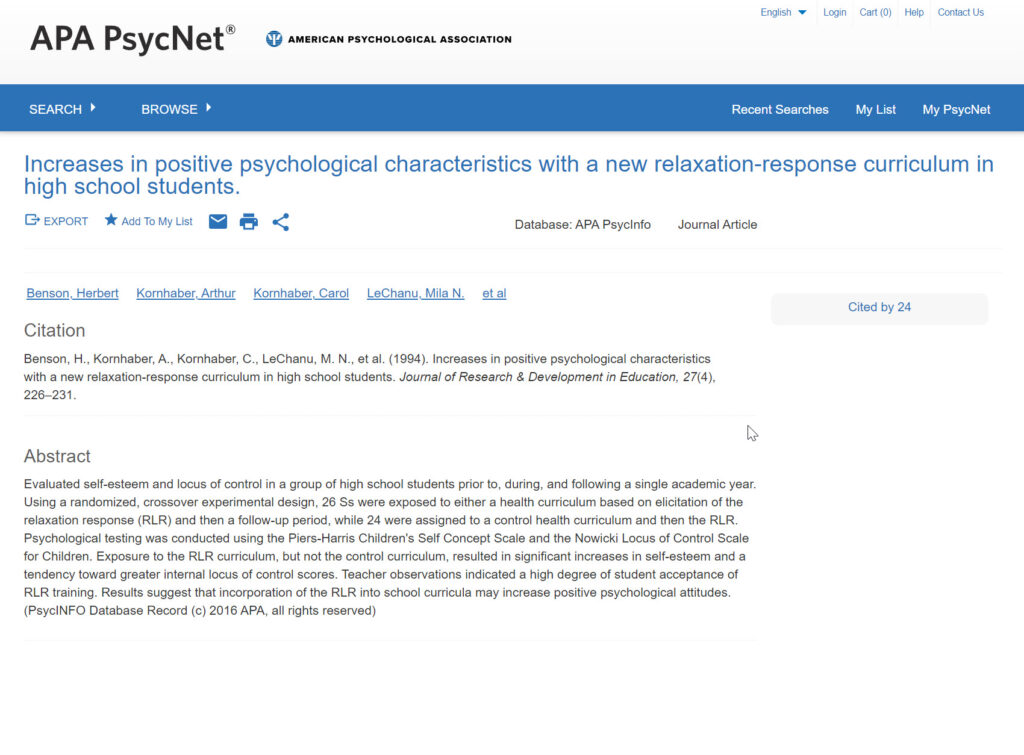Evaluated self-esteem and locus of control in a group of high school students prior to, during, and following a single academic year. Using a randomized, crossover experimental design, 26 Ss were exposed to either a health curriculum based on elicitation of the relaxation response (RLR) and then a follow-up period, while 24 were assigned to a control health curriculum and then the RLR. Psychological testing was conducted using the Piers-Harris Children’s Self Concept Scale and the Nowicki Locus of Control Scale for Children. Exposure to the RLR curriculum, but not the control curriculum, resulted in significant increases in self-esteem and a tendency toward greater internal locus of control scores. Teacher observations indicated a high degree of student acceptance of RLR training. Results suggest that incorporation of the RLR into school curricula may increase positive psychological attitudes. (PsycINFO Database Record (c) 2016 APA, all rights reserved)
Increases in positive psychological characteristics with a new relaxation-response curriculum in high school students.
Publication
Journal of Research and Development in Education
27(4), 226-231
Abstract
Web and Email Links
Related Listings
Journal
The International Journal of Clinical and Experimental Hypnosis
Procedures for self- and hetero-hypnotic induction and for the elicitation of the relaxation response appear to be similar. Further, before experiencing hypnotic phenomena, either during a traditional or an active induction, a physiological state exists which is comparable to the relaxation response. This state is characterized, in part, by decreased heart rate, respiratory rate, and blood pressure. After the physiological changes of the relaxation response occur, the individual proce […]
Journal
PLOS ONE
The relaxation response (RR) is the counterpart of the stress response. Millennia-old practices evoking the RR include meditation, yoga and repetitive prayer. Although RR elicitation is an effective therapeutic intervention that counteracts the adverse clinical effects of stress in disorders including hypertension, anxiety, insomnia and aging, the underlying molecular mechanisms that explain these clinical benefits remain undetermined. To assess rapid time-dependent (temporal) genomic […]
Journal
Headache - The Journal and Head and Face Pain
Supported, in part, by grants from the United States Public Health Service (HL 14486-01, HL 10539-06, and RR-76 front the General Clinical Research Centers Program of the Division of Research Resources), the General Service Foundation, the Headache Research Foundation, and the Sandoz Foundation, Inc.

